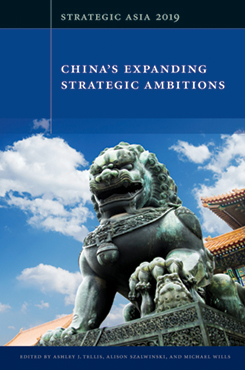Shifting Winds in Southeast Asia
Chinese Prominence and the Future of the Regional Order
This chapter examines China’s growing influence in Southeast Asia and the South China Sea, addressing implications for the region and the United States.
Executive Summary
MAIN ARGUMENT
China’s growing economic, strategic, and political prominence have put it in a stronger position to shape developments in Southeast Asia. Beijing’s apparent disinterest in strategic restraint, the region’s inability to resolve collective action problems, and uncertainty over the future U.S. role in the region bolster China’s influence and preeminence there. Such trends reflect not just historically close ties between China and Southeast Asia but also China’s recent attempts to take the initiative in these relationships and divide the unity of the Association of Southeast Asian Nations (ASEAN). Should the U.S. wish to retain an active forward presence in Southeast Asia, more direct, frequent, and intense friction with China is likely. Robust regional partnerships and a credible rules-based order are key to weathering such tensions.
POLICY IMPLICATIONS
- China’s resurgence in the region, coupled with uncertainty about U.S. regional leadership, implies the continued erosion of ASEAN centrality, which in the past has helped promote regional calm. If Southeast Asian states wish to maintain regional autonomy and avoid being torn between the U.S. and China, they must overcome collective action problems.
- ASEAN’s challenges in managing contentious U.S.-China relations mean there is mounting urgency for member states to decide whether to engage in serious organizational reform or adopt alternative institutional arrangements, including ones that may facilitate Chinese primacy.
- The U.S. must more concretely articulate and implement its Indo-Pacific strategy in Southeast Asia. The viability of the U.S. position in the region depends on clarity, consistency, and direction with ASEAN, individual Southeast Asian states, and other regional actors.
Ja Ian Chong is an Associate Professor in the Department of Political Science at the National University of Singapore.
Strategic Asia
The Strategic Asia annual edited volume incorporates assessments of economic, political, and military trends and focuses on the strategies that drive policy in the region. Learn more about Strategic Asia.



